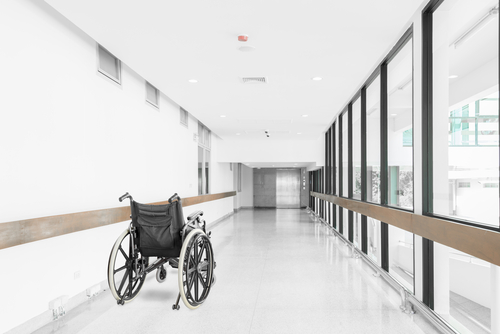Plummeting Nursing Home Occupancy Rates Raise Quality of Care Questions
The pandemic sent the median occupancy rate in American nursing homes plummeting, and with no return to pre-pandemic rates in sight, experts fear resident care will suffer, says an AARP article. With facilities projected to lose $94 billion between 2020 and 2021, money will be scarce for everything from activities and food quality to staffing and infection control. Such deficiencies will impact the health and quality of life for residents, potentially resulting in an uptick in bedsores, falls, infections, and other negative effects.
While nursing home occupancy numbers have been declining since the 93 percent occupancy rate of the late 1970s, from January 2020 to January 2021 the percentage rate fell sharply from 85 to 68, thanks to the ravages of the coronavirus. Even with the introduction of vaccines and the swift decline of nursing home COVID cases, the occupancy number has risen only a few points (to 74 percent) as of September.
Plummeting nursing home occupancy rates raise quality of care questions and experts are pessimistic about the recovery of nursing home occupancy rates due to three factors: the persistent fears regarding the safety of nursing homes, the continued staffing crisis, and the dominance of for-profit chains in the industry.
- Safety Fears—The recent rise of virus cases due to the highly contagious delta variant has rendered many potential nursing home residents reluctant to move in. To complicate matters, vaccine hesitancy among nursing home staff has deepened fears about nursing home safety for residents. Vaccine mandates for nursing home workers are just coming into effect, and could produce another unwanted problem: a deepening of staffing shortages once unvaccinated workers are not permitted to work.
- Staff Shortages—Staffing issues are not only a product, but a contributing cause, of low occupancy in homes. Not having adequate staff to provide sufficient care forces homes to keep occupancy rates low. According to the AARP article, nearly 60 percent of U.S. nursing homes are limiting new admissions because of a limited workforce. Nearly 80 percent fear staffing challenges might force them to close. In the meantime, homes are struggling with the short staff they have. Even when nursing homes are able to meet the minimum standard of nursing coverage as outlined by Medicare and Medicaid, these staffing requirements often fall short of what experts feel are necessary to truly meet each resident’s needs.
- For-Profit Chains—About 70 percent of nursing homes are for-profit. The complex ownership structures of these homes obscure their financial transparency, so when Congress sends money in an effort to assuage low occupancy, how this money is actually appropriated in a for-profit structure is difficult to determine.
The article cites some warning signs of low occupancy for families of residents to keep in mind, such as staffing cuts, a decline in facility cleanliness or food quality, and closures of wings or floors within a home. Most importantly, family members should be attuned to changes in the appearance or health of their loved ones. Should they appear ungroomed, unclean, or missing items such as glasses, hearing aids, or jewelry, their home might be suffering the effects of low occupancy.
Protecting Your Loved One
Pennsylvania and New Jersey nursing homes are at all times required to secure the physical, mental, and psycho/social well-being of their residents by meeting certain health and safety requirements and providing adequate care. To meet these standards, the Philadelphia/PA or NJ nursing home where your loved one lives must be equipped to avoid the kind of substandard care that amounts to nursing home neglect or abuse. This includes ensuring adequate, quality staffing. Should you have concerns about a Pennsylvania or New Jersey nursing home during COVID-19, or if you suspect neglect, abuse, or fraud has occurred at the Pennsylvania, Philadelphia, or New Jersey nursing home where your loved one lives, please contact nursing home abuse attorney Brian P. Murphy to discover your legal rights and options.







